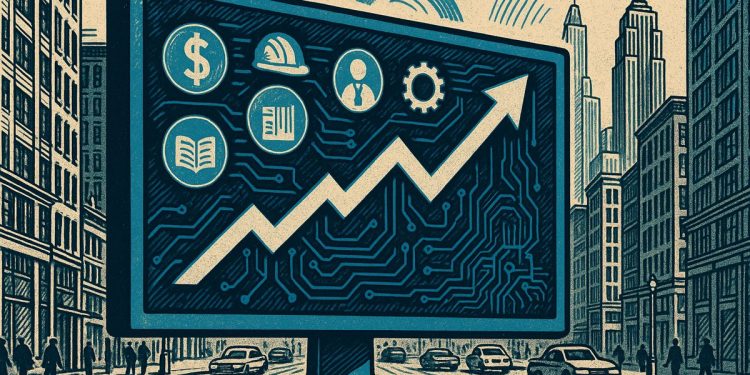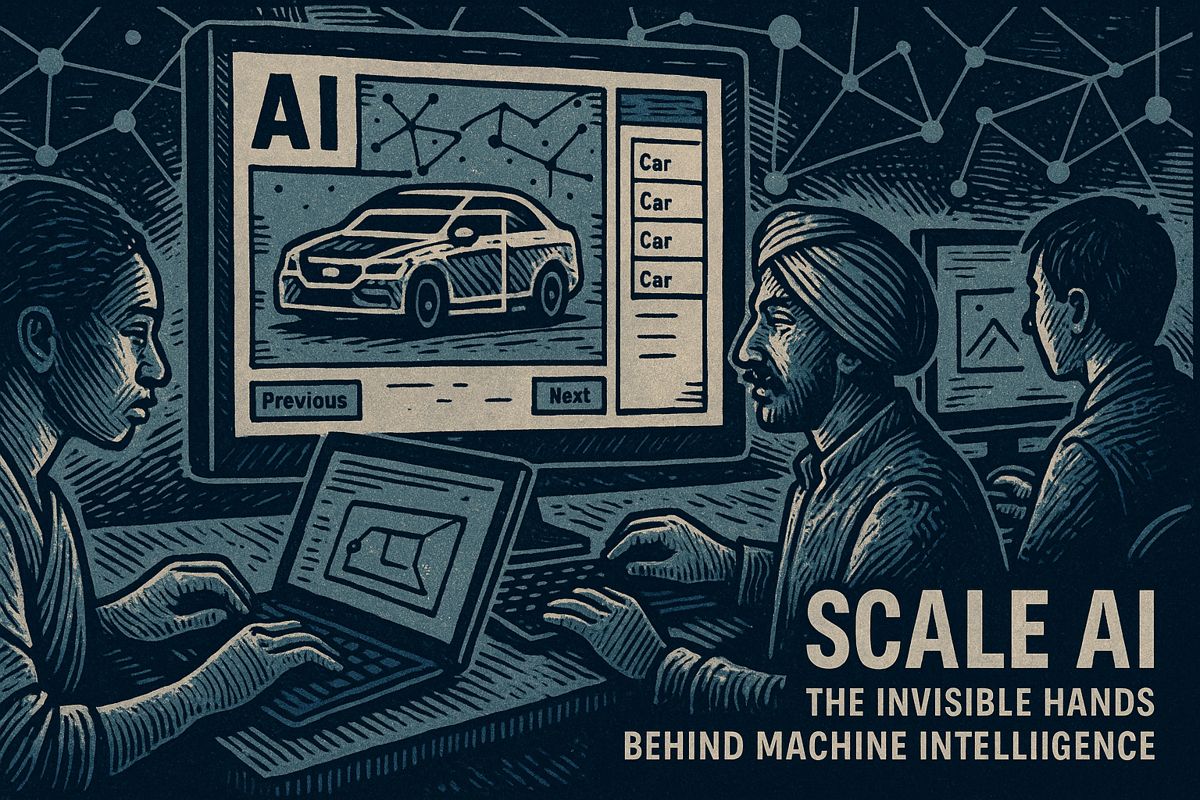Professionals who add even one AI skill to their resume can earn about $18,000 more per year – 28% higher than others. This extra pay isn’t just for tech workers; people in finance, HR, education, and factories are seeing big benefits too. The main reason for this pay gap is that more companies are needing AI skills, but not many people have them yet. Fast ways to gain these skills include short courses, digital badges, and working on projects with others. Learning AI isn’t just for tech experts – almost anyone can do it and get paid much more for their work.
How much more can professionals earn by adding AI skills, and who benefits?
Professionals who list even one AI-related skill earn an average of 28% more – about $18,000 extra each year – across industries like finance, HR, education, and manufacturing. This AI salary premium is growing as demand for AI skills expands beyond traditional tech roles, benefiting a wide range of jobs.
Recent labor-market data from Lightcast shows that professionals who list even one AI-related skill now earn 28% more than their peers. In dollar terms, that is roughly $18,000 extra each year – a premium that keeps widening as 2025 progresses.
Why the gap is so large
- Supply crunch: 1.8% of all US job ads now request AI skills, up from 1.4% just twelve months ago.
- Cross-industry demand: Over half of AI-skill vacancies are outside traditional tech roles. Finance, HR, education and manufacturing are the fastest-growing recruiters.
- Regulatory push: With the EU AI Act entering enforcement stages and UNESCO’s ethics standard gaining traction, firms are hiring responsible-AI specialists to avoid compliance risk.
Who is eligible for the premium?
| Function | Typical AI Skill Required | Median Premium* |
|---|---|---|
| Finance | Risk-modelling with LLMs | 25% |
| HR | Talent analytics tools | 22% |
| Marketing | Generative content ops | 20% |
| K-12 Education | Adaptive learning engines | 19% |
| Manufacturing QC | Vision-based inspection | 24% |
*Source: Lightcast Global AI Skills Outlook 2025
Figures represent the salary uplift above equivalent non-AI roles within the same function.
Fastest route to the extra $18k
- Cohort micro-courses: Two-to-four-week programmes built around real company data have the highest completion rates (82% in AstraZeneca’s internal cohorts).
- Self-guided accreditation: Employees earn digital badges after 6–8 hours of hands-on labs – no coding background required.
- Peer projects: Pairing domain experts with AI engineers on pilot use-cases doubles retention of new skills, according to AWS Executive Insights research.
Bottom line
The AI pay bump is not reserved for software engineers. Anyone who can safely prompt an LLM, interpret model outputs or spot ethical risk is already worth four figures more per month to employers. Structured up-skilling is the cheapest way – and fastest – to collect it.
How much can someone earn by adding AI skills to their resume?
Professionals who add AI skills to their toolkit are commanding up to 28% higher salaries, which translates to about $18,000 more per year than peers without these competencies, according to 2025 data from labor-market analytics firm Lightcast. The premium is not limited to Silicon Valley engineers – it extends across finance, HR, education and other non-tech functions.
Key takeaway: one credential or course in generative AI, machine learning or prompt engineering can yield a five-figure pay bump.
Which non-tech industries are paying the biggest AI premium?
- Finance – roles in risk modeling, fraud detection and algorithmic trading list AI requirements for 15-25% higher pay
- Human Resources – recruiters using AI for talent analytics and automated screening are seeing similar 20%-plus premiums
- Education & Training – instructional designers who build AI-driven curricula earn $15 k-$20 k more annually
- Corporate Consulting – management consultants who package AI strategy for clients capture the full 28% differential
More than half of all job ads requesting AI skills are now outside IT and computer science, a sharp jump from just 39% in 2019.
What specific AI skills should a non-technical professional focus on first?
Employers are looking for AI fluency, not PhD-level code skills. Top 2025 search terms in job descriptions include:
- Prompt engineering for tools like ChatGPT and Copilot
- Data storytelling with generative BI dashboards
- Responsible AI governance – ensuring outputs are ethical and compliant
- No-code/low-code automation using platforms such as Zapier or Power Automate
A short, cohort-based certificate in these areas often takes 4-6 weeks and is immediately usable on the job.
Is the AI salary premium expected to last?
Demand signals point to growth, not a plateau:
- US postings mentioning AI skills rose 56% in the first four months of 2025 after 120% growth in 2024
- Global demand for responsible AI roles has climbed from near-zero in 2019 to almost 1% of all AI postings in 2025
- The EU AI Act and similar regulations are prompting firms to hire ethics and compliance specialists at scale, sustaining upward pressure on wages
In short, upskilling now positions workers ahead of a regulatory and adoption curve that is still accelerating.
How can an employer or individual start an AI-upskilling program today?
For individuals:
- Micro-credential courses: Google, IBM and Coursera offer 4-week certificates in generative AI and NLP aimed at non-coders.
- Cohort bootcamps: companies like AstraZeneca run internal 6-week programs that mix peer learning with real business use cases.
- Hands-on practice: dedicate one project per quarter to integrating AI (e.g., automate a weekly report with ChatGPT or build a no-code chatbot).
For employers:
- Start with a skills audit to map current AI literacy gaps
- Launch role-specific tracks: a marketer learns prompt engineering while an HR partner focuses on responsible AI compliance
- Measure impact by tracking salary increases and internal mobility six months post-training
Both sides see positive ROI: employees gain $18 k+ in extra earnings and companies reduce time-to-hire for hard-to-fill AI roles by up to 30%.



















